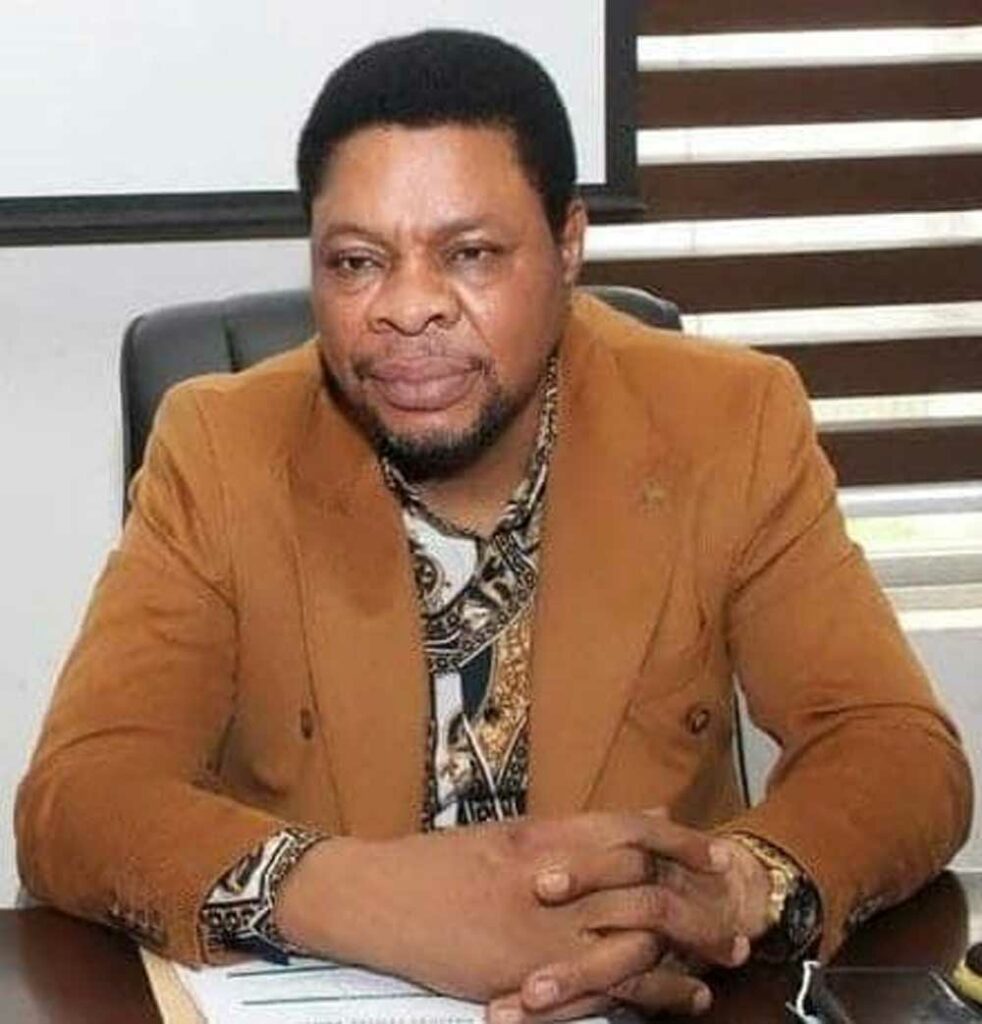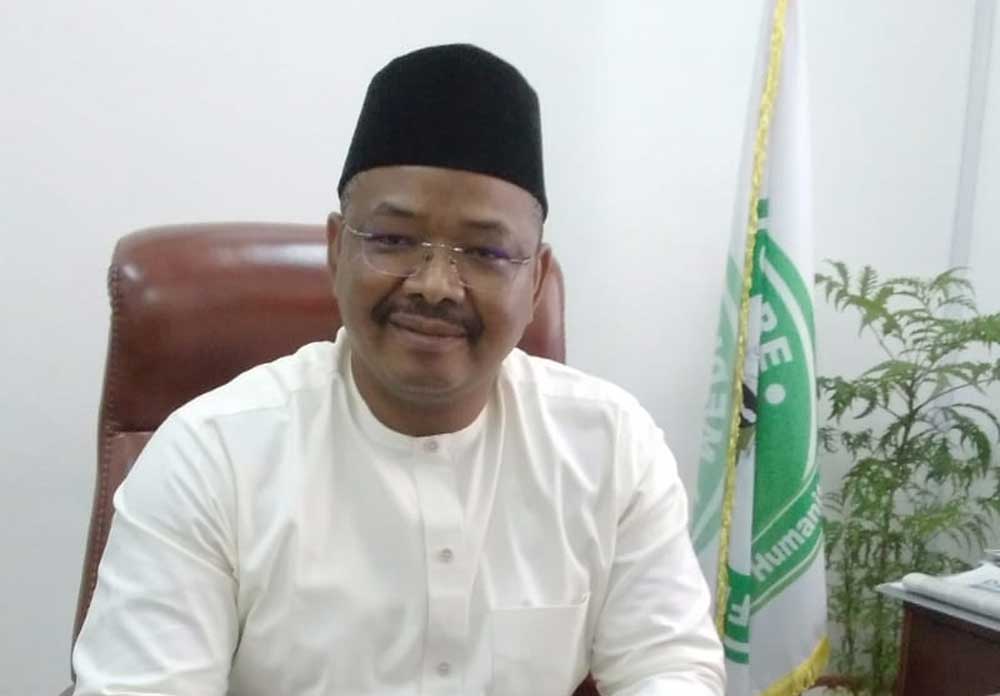Why We Treat Indigent Patients Without Money Deposit- FMC Jabi
Federal Medical Centre (FMC), Jabi, Abuja, is recognized as one of the best public healthcare facilities in the 54 countries that make up the Commonwealth nations.
However, the hospital is also noted for treating and performing surgeries on indigent patients and others without asking for advance payment.
Advertisement
Professor Sa’ad Ahmed is the Medical Director of the Centre, but it was Dr Eziechilla Joseph, an Ophthalmic Surgeon and Head Clinical Services of the hospital who spoke to THE WHISTLER on how the FMC is able to carry out its services.
Excerpts:
Your Hospital Practice Saving Life Before Payment, Tell Us More About It.
Patients coming to the hospital without payments are tagged “Unknown Patients.” We first treat them to save their lives before asking for payments. We tag them the Unknown Patients so that they can have access to the record being opened. We are using the medical electronic recording system because patients must be recorded.
Advertisement
We’ve had several of them. Some will start treatment running into hundred thousands of naira and their relations later show up.
There was a man who drove to the emergency himself and as he entered the emergency, he was already having a respiratory attack but managed to drive himself to the hospital and slumped and even went into a coma.
They took him to the Intensive Care Unit (ICU). Our ICU deposit is N200,000 in 3 days. In fact, they had to call me, took his phone from his car and tried to find numbers to call. His people later showed up. Thank God the day I went to the Managing Director (MD), we saw the young man hale and hearty in the ICU, they were able to settle him.
We also had some, after treating them their relations never showed up. Like one Unknown Patient brought here, we even went to Human Right Radio to make announcements about him and try to see if anybody will come and identify him.
So, for such, after he gets well, you can’t hold him because he didn’t ask you to treat or manage him. So, he has gone. He came as an Unknown Patient and since nobody came to lay claims to him, we allowed him to go.
Advertisement
There are also those that are demised, who are you telling to come and pay? Of course, they are not going to pay!
But you know, we try to sustain services because the drugs you have, you buy them. You don’t go to the market and say “I’m FMC, give me drugs” and they give you.
Maintaining the Air Conditioner (AC), you can see gadgets, these are spoiled gadgets. They also have to be repaired. I have a quotation two hundred plus dollars, we got a quotation of 42,000 dollars just to fix a machine. You know, sometimes that’s why you call good spirited individuals and philanthropists to come and hopefully help out with these bills.
When these bills are not paid and they accumulate for so long, it could be difficult to sustain services. Look at the message sent by the Head of Radiology yesterday. It’s 42,000 dollars to fix two of the CTs. And the main company when they come to do that you know what that means in naira.
Sometimes you have some people coming with head injury and you just say ok go and do CT, this is the same CT and you need them to function to save the next life because if they are not working, you’re not able to sustain or maintain them, which becomes a big challenge and trouble for everybody.
But the MD is somebody I can say is exceptional; very, very exceptional. His leadership ability is second to none, and really making efforts to make the hospital be where it should be, keeping with the mission and vision he has.
Advertisement
We have a lot of indigent patients, you finish treating them and bills accumulate to 400-500, 000. That happens a lot. They bring them from the peripheral hospital and at the end of the treatment, you will see they don’t have money to pay.

How Do You Get Back Your Money?
Sometimes we ask them to sign an undertaking that they will pay the money, but most times they don’t sign.
We have a bill of N6.5 million. The man was in the ICU for some months and his bill accumulated. He got well, we discharged him, he has not paid, he was saying he will try. He was also looking for people to help him. When he went back home, we don’t know what happened, as they were feeding the man, he aspirated and by the time they rushed him back here he was dead. The bill has accumulated since last year. They signed an undertaking, I saw the son the other day, will we arrest him? No.
How Frequent Do You Record Such Cases? And How Many Were Successful?
On a daily basis. Sometimes you have 3, sometimes more. They come here. Now, I’m surprised one has not come since morning. They will bring one. They will tell you “Oga I no get money,” especially with the Obstetrics and Gynaecology. They come on emergency. Some will even go as far as threatening you, and saying “is it not a government hospital?” Some feel it’s their right. if you go to a private hospital, even small ones, you pay because bills are bills.
This morning, the electricity bill alone was N50m for one month. The government pays overhead costs and capital projects, but the functioning of the hospital is on you. So where do you go from there?
What Was The Trickiest And Most Difficult Case You Handled?
We have just given you the case of N6.5 million, it’s still outstanding. That’s among the difficult ones, but the one that is so annoying are the ones that will even come and start threatening you despite they’re not paying.
Is It Against Medical Ethics To Reject Patients Because Of Payments?
That is only on emergencies not normal cases. On emergency, you’re allowed to offer treatment for 24 hours and then you can ask for your payment. In cases where somebody is unconscious, we still put a human face to it. If you stop treatment, what if the person dies? But there are so many intricacies to this which are not really defined.
But if you’re in a private hospital, you’ll hear “I’m referring you out, I’m no more treating you” because they have to pay rent and staff. But here, you just look at it and my boss will say you should do the right thing. But you know it’s a burden to you.
I have one I just signed this morning. Their drugs accumulated to N700,000. The woman is still in theatre. We had to do some rebate. I told the husband, “These drugs that have accumulated, you know we don’t manufacture drugs, we still get these drugs and pay the pharmaceutical companies. How do you want the services to be sustained?” Some that have human conscience after you explain to them they try to some reasonable extent.
What Advice Do You Have For Some Hospitals Who Don’t Believe In Saving Life Before Payment?
My sister, it’s very difficult. It depends on your capacity. I just told you it’s the human face leadership of the MD. It’s not easy. Now it’s the same hospital you’re doing this to: no drugs, no oxygen, they’re the same that’ll go to social media. So, you see, it’s between the devil and the deep blue sea. It’s the same people that will say this hospital is useless, nothing is working. So, if you want to become a philanthropist or do NGO, it will tell on you. Somebody must pay for it, rather what you should ask is, the system to make the insurance work. Even in advanced countries you see that the insurance is working, somebody must pay for it.
I was in a hospital in Ghana recently. We did about 300 cataract surgeries because people have insurance. Market women have insurance, the old woman’s family has insurance. They just come to the hospital, present an insurance card which is still active, provide services and record it and claim your money.
So, it’s not advising the hospitals to begin to run NGOs or become philanthropists. It’s for the system to make things work.
The formal sector of insurance is just 20% covered; we’ve not done the informal sector. We should look into it. Even the person, the Unknown Patient will have an ID card.
Can You Tell Us How You’re Able To Sustain The Hospital Treating Unknown Patients?
After I sit them down I explain to some of the patients, they will say OK. They will move, talk to relatives, people, to get the money paid and that’s OK. Or even pay like two-third of the money.
And sometimes some people will come and say we want to see some indigent patients in the ward, how many of them can’t pay their bills?
Recently an organisation from the EFCC came like a team and paid. Like you know, they don’t give it by hand. They look at the records, see the bills, pay into the patient’s folder so that money can be deducted. The head of social welfare informed me that they paid up.
And one other thing that I told you, the human face leadership of Prof Sa’ad, apart from the social welfare that was able to set up an indigent fund. So, most of these people come, they apply for social welfare. They give you what they are able to support you with. When their capacity runs out, they go to the indigent fund. But you know this money is scarce, you can’t take all the money and give it to one person. So, you try to distribute it evenly to have equity, not equality. So those were some of the landmark things he did in this hospital as he came in.
And it will interest you, by tomorrow we’ll start open heart surgery. We’ve been doing it, but this one now is sponsored by a group.
We have a list of hundred and twenty-three (123) indigent children that cannot afford this surgery. And this may get up to N16 million to be done. But we were able to solicit, and a group is sponsoring five for a start and we run Thursday, Friday and Saturday. Three days then others will follow.



